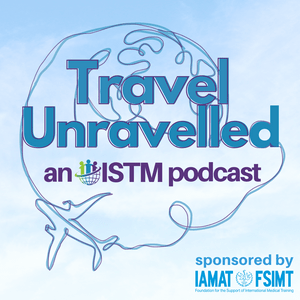High Stakes: A Guide to Altitude Illness in Travellers
Approximately 50,000 people attempt to reach the summit of Mount Kilimanjaro every year, making Africa’s highest peak one of the most popular climbing destinations in the world. But despite the many ambitious climbers, only 60% actually make it to the top. That’s likely because many climbers, regardless of age, experience, and fitness level, will face something far more elusive: altitude sickness. And it’s not just the climbers who feel it; millions of tourists at high-altitude destinations ranging from the Andes to the Himalayas are equally at risk. Headaches, nausea, and gastrointestinal issues are just some of the common symptoms of Acute Mountain Sickness (AMS), a near-universal part of the climbing experience at 3,000 metres above sea level. And unlike other travel illnesses, there’s no vaccine for this one. So what’s actually helpful to alleviate symptoms? Are preventive medicines like acetazolamide reliable? What about Peru’s coca tea or Nepali Pilgrim’s black pepper, ginger, and garlic remedy–are any of those effective at all? And is there any value to having oxygen piped into your room? In this episode, the Travel Unravelled hosts are joined by topic experts Dr. Steven Roy (Canada), Dr. Suman Acharya (Nepal), and Professor Ross Hofmeyr (South Africa) to explore the risk of altitude sickness in travellers: how to prepare for it, and how different cultures and climbers around the world try to prevent or treat it. GUEST BIOS Dr. Steven Roy is an intensive care physician and a consultant in high altitude and wilderness medicine. He is the program director of the Diploma in Wilderness & Expedition Medicine and co-program director of the Resident Physician Elective in Wilderness Medicine. Dr. Roy has high-altitude experience in the Himalayas, the Alps, the Rockies, and the Andes. Dr. Suman Acharya is a consultant physician at Lumbini Provincial Hospital, located on the Southern border of Nepal. He did his Diploma in Mountain Medicine in 2017 and frequently goes to the Himalayas as an expedition doctor, trains and educates mountain guides and climbers about altitude illness. Dr. Acharya is currently serving as the secretary of the Mountain Medicine Society of Nepal and as a Board member at the Himalayan Rescue Association. Professor Ross Hofmeyr is a cardiothoracic anaesthesiologist at the University of Cape Town, South Africa, and co-founder and medical director for Wild Medix. With a special interest in extreme physiology, he has led expeditions in environments ranging from the Antarctic to the tropics, including running mountain medicine training on many of Africa’s highest peaks, such as Kilimanjaro and Mount Kenya. LINKS Download ISTM’s Altitude Illness Fact Sheet. Check out the UIAA’s Summit Series featuring medical guidance for those seeking to summit some of the world’s highest peaks. HACE occurs in about 0.5–1% of individuals ascending between 4,000–5,000 m. Take the Lake Louise Scale to assess adults with AMS. Watch IUAA’s guide on high-altitude illness treatment and prevention. Acetazolamide is a great tool to combat symptoms of AMS—unless you get adverse reactions to "sulfa" antibiotics. Dexamethasone is effective for preventing and treating AMS and HACE and might prevent HAPE as well. Nifedipine both prevents and ameliorates HAPE. A study on the use of sildenafil citrate (aka Viagra) to treat HAPE is here. To follow us on your favourite podcast platform, go to our show feed on Apple Podcasts, Spotify or YouTube. Please remember to rate the show! Visit the International Association for Medical Assistance to Travellers (IAMAT), which provides extensive resources, like the Guide to Healthy Travel, and Guide to Travel Health Insurance. IAMAT is the exclusive sponsor of season 2 of ISTM’s Travel Unravelled podcast. The ISTM’s Travel Unravelled podcast is produced by Ghost Bureau, the Toronto content agency. DISCUSSION POINTS 00:00 Welcome back to Travel Unravelled! 00:42 Catching up with Travel Unravelled hosts 03:15 Guest introduction 09:33 What is altitude illness? 17:13 Why do many mistake altitude sickness for a bad meal? 22:40 How can we be better prepared for high-altitude? 28:28 Why do people speedrun Kilimanjaro? 39:33 Does being fit help avoid altitude illness? 41:12 Is ibuprofen a good preventative for altitude illness? 51:20 Why are people having trouble sleeping at altitude? 56:46 Does coca tea actually help with altitude illness? 1:01:14 What to add to a first-aid climbing kit? 1:12:57 How do you get rescued from high altitude? 1:23:36 Final comments


